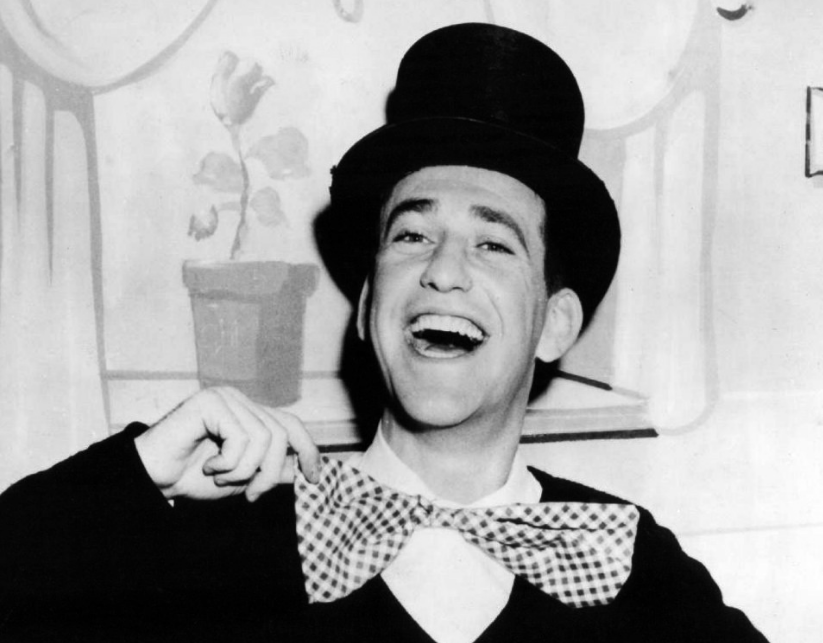The Kids’ TV Host Who Was Put in Time Out

If you grew up in the United States in the 1950s and 1960s, you know who the man pictured above is. That’s Milton Supman, better known by his stage name, Soupy Sales. From 1953 through 1966, Sales hosted a daily show ostensibly designed for children, titled “Lunch with Soupy Sales.” Wikipedia describes it as follows: “Improvised and slapstick in nature, Lunch with Soupy Sales was a rapid-fire stream of comedy sketches, gags, and puns, almost all of which resulted in Sales receiving a pie in the face, which became his trademark.” And it was filmed live — which means, day in, day out, Sales had to be ready to perform.
On January 1, 1965, he really didn’t want to. It was New Year’s Day and Sales wanted the day off, like most other people in the country did. But network executives had other ideas and as they say, the show must go on. So, it did, and the episode went off without a hitch — mostly. One of the perils of live TV is that you run the risk of not quite timing everything perfectly, and in this episode, Sales’ pre-planned antics ended a minute or so early. His producers told him to ad lib and fill the time, so he did.
Annoyed with having to be on-air while most others were celebrating the New Year, Sales decided to have a little fun with his audience. No recording of the episode exists, but according to various accounts (including Sales’ own recollection), he asked his young fans to send him some fan mail. And not just any fan mail would do. Specifically, Sales asked his viewers to sneak into their parents’ bedrooms, rifle through their purses and wallets, and take out the “funny little green pieces of paper” with pictures of people on them. Then, Sales instructed them, they were to mail these little portraits to him at the New York City television station at which he then worked.
It’s not clear how many kids sent how much money. Decades later, Sales worked the story into his standup routine — in that version (here’s a video), he claimed that kids sent him, in total, $80,000. That’s unlikely, though — accounting for inflation, that’d be worth nearly $650,000 today, and, as the New York Times reasons, “if that had been true, he would have had enough money to buy the building.” Most believe that Sales received only a handful of money; Entertainment Weekly went one step further, asserting that “the gag netted only $1 (and a few envelopes stuffed with Monopoly money).” After all, young kids probably couldn’t go through the whole process of correctly addressing an envelope and adding a stamp; meanwhile, those kids who were old enough to know how to do that were also probably old enough to know that Sales was just joking.
So it’s safe to say that he didn’t receive a lot of mail from kids. But unfortunately for him, he definitely received a lot of feedback from adults — and they weren’t fond of the joke (with some not seeing it as a joke at all). Parents complained about the incident for weeks, and ultimately, the network that aired Sales’ show suspended him for two weeks.
His career recovered though and arguably thrived. Per many accounts, the buzz around the stunt made him more popular. His show wasn’t canceled after his “greenmail” scandal — it lasted for another two years. After, he’d parlay his success into a radio show and regular appearances on celebrity-laden game shows of the day, staying part of the lives of the many children who grew up watching him as they aged. And he never asked them to send him money again.
Bonus fact: On-air, Sales (per the above) got hit with a lot of pies. For some fans, that became a good way to greet him off-air — if you planned it right, you could pie him in the face instead of asking for an autograph. Okay, that’s not a very good idea, but it happened a few times, and in one case, went very badly. The New York Times explains in its 2009 obituary of the performer: ‘”One of my younger fans made the mistake of heaving a frozen pie at me before it defrosted,’ he once wrote in The New York Journal-American.’It caught me in the neck and I dropped like a pile of bricks.'” Ouch.
From the Archives: Pennies from Everywhere: When asking people to send you money actually worked.
